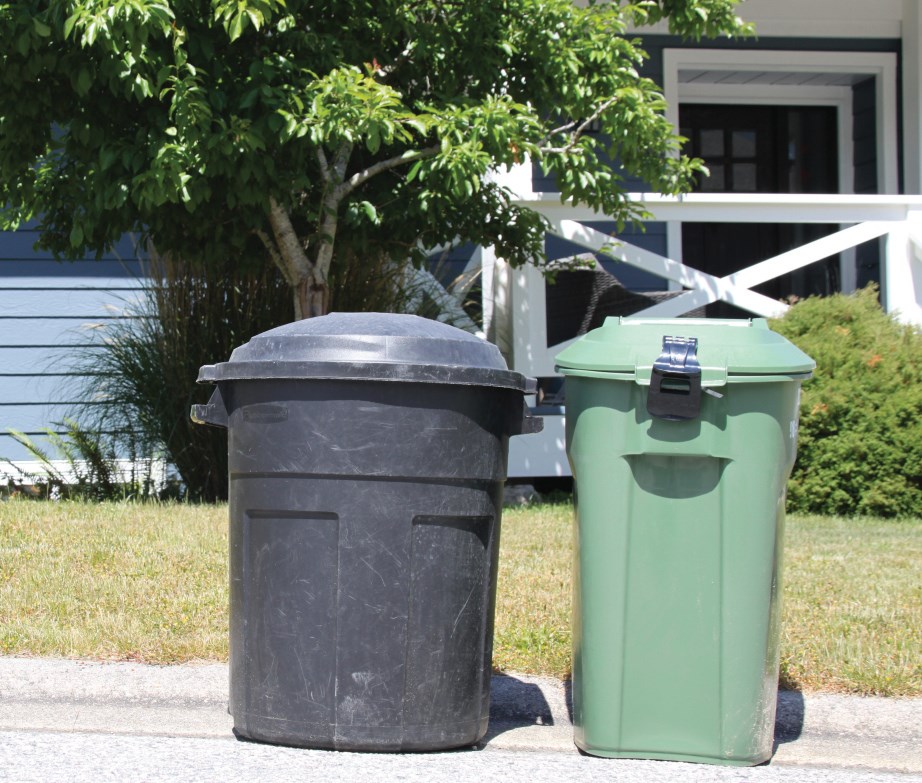Waste collection will be changing this October for those who rely on the Sunshine Coast Regional District (SCRD) service.
Starting Oct. 6, food waste will be collected separately from garbage.
Food waste collection will be weekly while garbage collection will be reduced to every other week, according to an SCRD release announcing the change.
Households in West Howe Sound, Elphinstone, Roberts Creek and Halfmoon Bay will be provided with separate containers for food waste.
“Residents just need to empty any food waste they have, such as plate scrapings, peelings, coffee grounds and paper towels into a kitchen container of their choice and then place them into their new Green Bin to be put out for collection on collection day,” said Robyn Cooper, manager of Solid Waste Services, in the release.
A food drop-off location for Area A residents is expected to be established next year. It was originally supposed to align with the start of the food waste collection service in other areas but directors voted to delay the service until 2021 to save money as the regional district contends with budget pressures related to COVID-19.
In January 2020, SCRD directors voted to award a five-year $2.3 million contract to Waste Management to operate the collection program, and to purchase collection containers from the company for approximately $200,000.
Households will be provided with 45-litre bins. Smaller “kitchen catcher” bins are not included, but residents will be receiving a “starter kit” with smaller paper bags to collect food scraps, a “what’s in” sticker and a collection guide.
Those items will be dropped off between Sept. 14 and 30, according to the release.
In February, directors voted to increase waste collection fees by 14 per cent to $175.85 per year from $154.25 to fund the service and contract. The fees were raised to $148.25 for homes in RV parks from $130.04.
That amount is expected to increase to $191.68 in 2021 for residential single-family dwellings and to $161.59 for mobile home parks.
The organic waste collected will be processed at Salish Soils in Sechelt.
Household food waste accepted includes bread, dairy, fruit and vegetables, fish, meat and bones, tea and coffee as well as “food soiled paper,” such as paper towels, plates, napkins, cardboard and newspaper. It also includes flowers and plant cuttings.
Yard waste and other green waste will not be accepted, and neither will liquids, hair, pet waste, “vacuum contents,” dryer lint, produce stickers, elastics, staples, twist ties and seashells.
Also not allowed are plastics labelled as compostable or biodegradable since they are not compatible with Salish Soil’s composting facility.
People cannot opt out of the program and will be required to keep food waste separate from garbage.
“Some residents may already be composting and we want them to continue to do so,” said Cooper. “However there may be materials that are accepted in the Green Bin that folks aren’t currently composting at home, such as meat or fish.”
Food waste accounts for approximately 35 per cent of household garbage in the Sechelt landfill and diverting food waste “is one of the biggest opportunities to extend the life of the landfill,” said the release. The landfill is expected to close as early as 2026.
More information can be found at www.scrd.ca/curbside-food.



